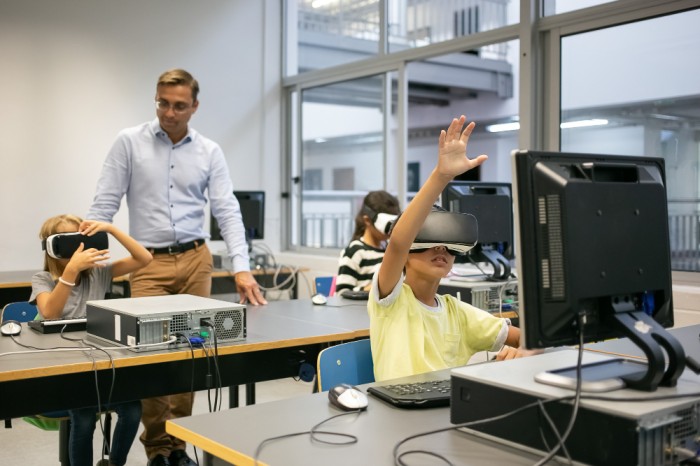
Adaptive Learning Technologies: Personalizing Education for Every Student
In today’s classrooms, one-size-fits-all instruction is no longer effective. Every student learns differently—at different speeds, through different mediums, and with different support needs. That’s why adaptive learning technologies are transforming modern education by offering personalized, real-time learning experiences that adjust to the individual needs of each learner.
With the help of advanced AV systems and intelligent software, schools can now tailor instruction dynamically, ensuring that every student is met where they are and supported in where they’re going.
What Are Adaptive Learning Technologies?
Adaptive learning technologies refer to systems—both software- and hardware-based—that monitor student progress and adjust content delivery based on performance, behavior, and engagement. These tools combine educational data with real-time analytics to continuously customize the pace, format, and difficulty of instruction.
In the classroom, adaptive tools can be integrated into existing AV systems to provide personalized experiences through interactive displays, learning management systems (LMS), cloud-based platforms, and intelligent response devices.
They not only improve academic outcomes but also empower students to take ownership of their learning journey.
Core Features of Adaptive Learning Systems
At their foundation, adaptive technologies leverage data and interactivity to optimize instruction. Key features include:
-
Real-time progress tracking that informs adjustments to lesson difficulty or pacing
-
Student response systems integrated with classroom displays for immediate feedback
-
Customized content delivery based on individual learning styles and comprehension levels
-
Integrated AV tools like touchscreen displays and collaborative workstations to support diverse media formats
-
AI-driven recommendations that guide students toward targeted resources or practice opportunities
-
Reporting tools for teachers to monitor engagement, assess growth, and intervene proactively
These capabilities ensure instruction is always aligned with the learner’s current needs—maximizing efficiency and comprehension.
CTI’s Role in Implementing Adaptive Learning Technology
CTI designs and delivers classroom AV systems that support the seamless integration of adaptive learning technologies. Their solutions include interactive whiteboards, flexible collaboration systems, wireless sharing platforms, and real-time content delivery tools that pair with adaptive software solutions.
Whether enhancing a single classroom or scaling across a district, CTI builds systems that support data-informed instruction and future-ready learning models. To explore how their approach empowers personalization in education, visit CTI’s adaptive learning technologies page.
CTI also offers training and implementation support to ensure educators are equipped to maximize the impact of these tools.
Industry Perspective on Personalized Learning
The growing focus on personalization in education is driving rapid innovation in classroom technology. A recent AVNation article on adaptive learning tools explores how districts are using AV and AI to deliver differentiated instruction at scale. The article emphasizes the value of combining hardware and software to support inclusive, student-centered environments.
These insights affirm that adaptive learning is not just a trend—it’s a cornerstone of future educational strategy.
Benefits Across the Educational Ecosystem
Integrating adaptive learning technologies into AV systems provides wide-ranging benefits:
-
Students receive tailored instruction that supports autonomy and mastery
-
Teachers gain real-time insights into student progress and classroom dynamics
-
IT and AV teams can centralize support and simplify system management
-
Administrators can monitor performance and equity data across multiple classrooms or campuses
-
Parents and guardians see personalized growth and meaningful engagement from their children
These technologies enhance both the efficiency and effectiveness of educational delivery—regardless of the learning model in place.
Preparing for the Next Generation of Personalized Learning
As educational institutions shift toward more student-centered, tech-enabled models, the need for adaptive learning infrastructure will only grow. Emerging innovations like AI tutors, virtual labs, and cloud-based learning ecosystems will rely on robust, integrated AV platforms that can support dynamic content and real-time feedback.
CTI’s systems are designed with this future in mind—offering schools the flexibility, scalability, and functionality required to adapt and thrive.
To discover how CTI can help your institution implement adaptive learning technologies that personalize education and improve outcomes, contact their team or visit CTI’s adaptive learning technologies page.
Talk to Us About Your Project
Too busy to chat right now?
Send us a message.

